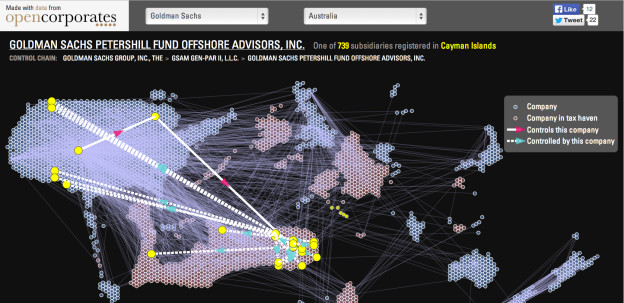If you live in Italy and are curious about your local authority’s pattern of spending and taxing, you are in luck. Since last week, OpenBilanci publishes on the web detailed financial data from all the 8,092 Italian local authorities for the past ten years. Both budgets and closed ex post accounts are available, along with a galore of indicators like financial autonomy or spending velocity. Not only are all data downloadable and open: OpenBilanci sports a nifty web interface for preliminary data exploration. The latter is a feature found also on other highly successful Italian open data projects like the mighty OpenCoesione, that released spending data on 749,112 projects funded by the country’s cohesion policy. And no surprise: though OpenCoesione is a government initiative and OpenBilanci is not-for-profit one, the same team of visionary coders stand behind both projects, through both a non profit and a for profit arm.
In the space of only a few years, open data have become a formidable force for openness, transparency and even data literacy in a country that badly needs all three. Forward-thinking civil servants and political leaders in some of Italy’s 20 regions (and some cities) have been working together with civic hackers for years now: Lazio has funded OpenBilanci through its SME-centred innovation policy, whereas Emilia Romagna has successfully built a partnership with the largest Italian open data community, Spaghetti Open Data. In a veritable stroke of genius, the city of Matera has decided to host on its own open data portal any open dataset produced by the local community.
When public authorities do not play ball, Italian civic hackers simply proceed to open up government data anyway. One of my favourite projects in this sense is Confiscati bene, started during an epic Spaghetti Open Data hackathon. The group wrote a crawler to extract data from the (non-open) website of ANBSC, a government agency tasked with reallocating assets confiscated to Mafia bosses and other assorted mobsters (the Italian police is doing a sterling job there, since ANBSC is juggling over 11,000 such assets). It cleaned them up, geocoded them, made them downloadable, built the customary sleek interface for web exploration, embedded them into a brand new website and released everything as a gift to ANBSC. OpenBilanci itself entailed scraping over two million web pages.
I know Italy’s scene best, but exciting open data projects are appearing everywhere. My absolute favourite one is British: OpenCorporates gathers data on over 60 million corporations all over the planet. Using unique identifiers and information on ownership structure, OpenCorporates shines a light on the corporate world, that has far less tight legal requirements on transparency than government. This OpenCorporates-based visualization, for example, will teach you much about Goldman Sachs.
It looks like the open data movement has come of age. It was surprisingly fast: in less than four years we went from a small cadre of nerds obsessing on Tim Berners-Lee famous “raw data now” speech to a strong community (there are almost 1,000 subscribers to the Spaghetti Open Data mailing list, churning out twenty messages a day 365 days a year) and a phalanx of young decision makers that understand the issue and are plugged into the community. I am proud of you all, my sisters and brothers in arms. And the best is yet to come – especially as we come together all across Europe, as I am sure we will soon since the times are ripe for this to happen. Who knows, data culture might even be able to shift European politics away from populism and onto evidence-based debate.
